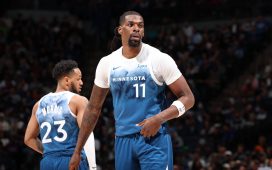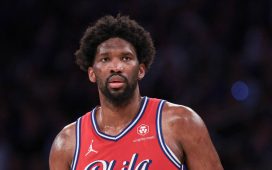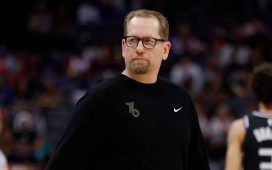Before particularly intense games in the bubble, I would text with my wife about my deepest fears. What if Damian Lillard couldn’t maintain his superhuman scoring? What if I woke up tomorrow with no more Blazers games to look forward to?
After one flurry of this, there was a long pause. I could see that she was typing something. “Do you feel weird caring so much when there are so many more important things to care about?” she wrote.
Even in my panic-sweat, I recognized this as an excellent question. It was, in a way, the crucial question of the bubble, and maybe even of America writ large: Does basketball matter? Does entertainment matter? In a world where governments are rotting from the inside out, where people are gasping for breath, why would we spend any resources on games, distraction, theater? What did it mean that our country’s most visible model of health and normalcy and logistical competence were coming from a professional sports league?
“Well, yes,” I responded. I did feel weird. Part of me sees basketball as embarrassingly adolescent, a costly distraction — Exhibit A for the way societies prioritize exactly the wrong things. The hours of attention I pour every month into sports could be poured into activism, outreach, gardening, exercise, calling my congresspeople.
Another part of me, though, is not embarrassed at all. Sports, at its best, answers a deep human need. We are ravenous for meaning. We want to know that what we do matters, because lord knows there is plenty of evidence to the contrary. Play is a bubble inside of which meaning is undisputed. It doesn’t matter that that bubble’s borders are arbitrary — that our games depend on byzantine rules and colorful uniforms and timers and buzzers and whistles. If anything, this makes the illusion more powerful. We have created purpose out of nothing, like gods. Inside the lines, our actions make perfect sense: Some are good and some are bad, and in the end, there is a result. Statistics are metaphysical bedrock. Something happened, and here it is: 20, 23, 7, 8. It all just depends on our collective will to believe.
The Dutch historian Johan Huizinga, in his classic 1938 book, “Homo Ludens” (“Playing Man”), argues that civilization itself springs from the urge to play games — that play is the master impulse behind humankind’s most sacred behaviors. “The turf, the tennis court, the chessboard and pavement hopscotch cannot formally be distinguished from the temple or the magic circle,” Huizinga writes. And: “The concept of play merges quite naturally with that of holiness.”
Before tipoff of the Blazers’ game, two opposite news stories broke. One was triumphant. The N.B.A. and the National Basketball Players Association announced that they had collaborated with Yale University in the development of a new Covid test — fast, easy, cheap and saliva-based. The plan was to distribute it widely, vastly expanding our nation’s testing capacity. It was yet another in a long line of the league’s P.R. victories. Sherrilyn Ifill, director-counsel of the N.A.A.C.P. Legal Defense and Educational Fund, posted the news on Twitter, and added: “Stepping up to do what our government failed to do.”








